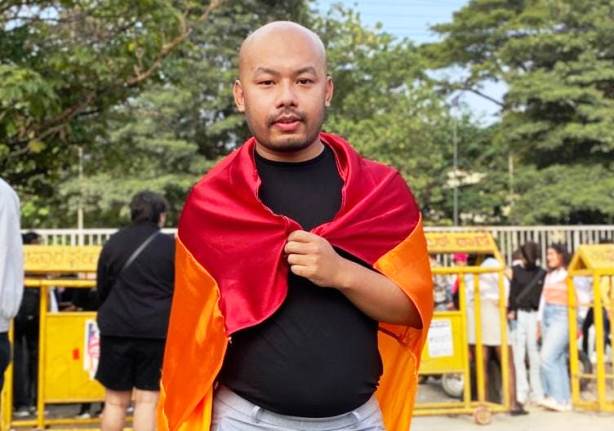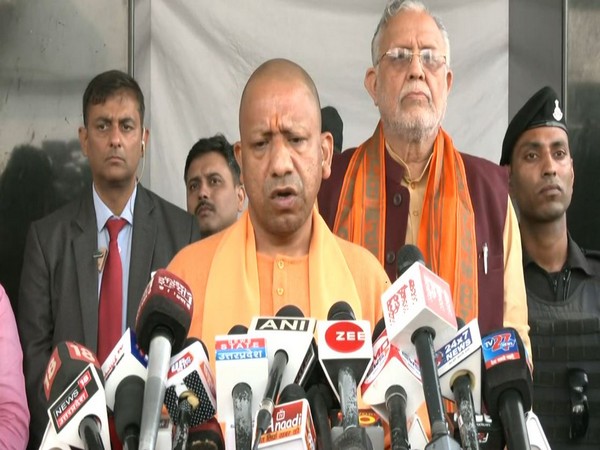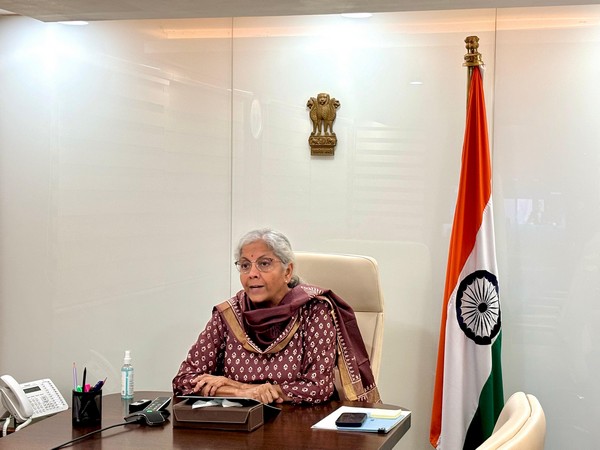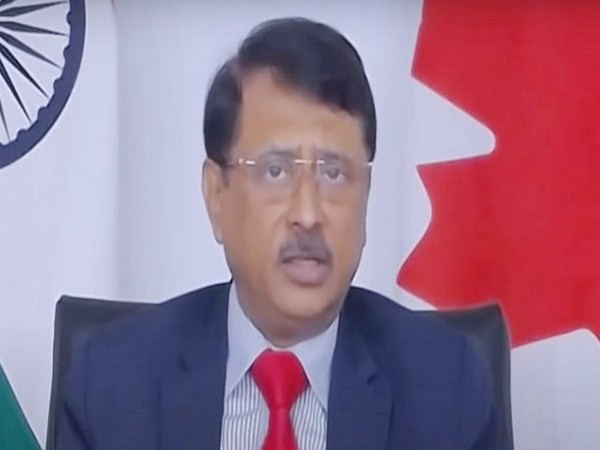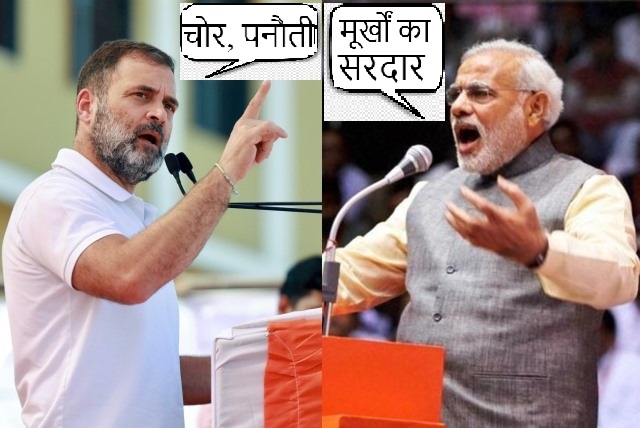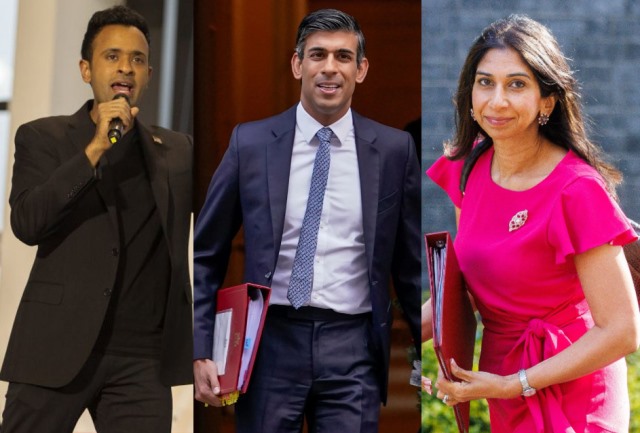Indian High Commissioner in Canada, Sanjay Kumar Verma said that, and India is only asking for “specific and relevant” evidence in the killing of India designated terrorist Hardeep Singh Nijjar so that it can help Canada in reaching the conclusion of the investigation.
He further said that instead of the differences, the India-Canada relations should focus on convergence, as New Delhi is still open for business relations and urges Ottawa to send more business delegations here.
In an interview with Canadian journalist Tahir Gora at TAG TV Toronto, the Indian High Commissioner said, “We have always said that India is ready to look into any specific and relevant shared by our Canadian friends and take it forward in a logical way that is legally defendable in both the countries”.
On being asked if India is looking into the allegations and concerns made by Canadian PM Justin Trudeau, Verma said that India is only asking for relevant information so that New Delhi can help Ottawa reach the conclusion of the case.
“India is only asking for specific and relevant information so that we can help you. We can help the Canadian investigators to reach their conclusion, to the extent that it will be viable for them to go for the legal action…I will urge my Canadian friends and colleagues. I can assure them that we will certainly look into them,” he added.
The Indian envoy further said that there is an understanding of New Delhi’s concerns from the Canadian side but more action needs to be seen on the ground.
“We have voiced our concerns on various occasions and not only today from through our historical relationship which we have here. I believe that there is an understanding of our concern in the Canadian policy-making circles and decision-making circles. I have seen many statements coming from the Canadian leadership respecting Indian sovereignty and territorial integrity and I have no doubt about it,” Verma said.
He added, “We need to see more on the ground and through the dialogue. I am sure we’ll be able to see that convergence on the ground as well and we’ll see any semblance of use of Canadian soil by Canadian citizens to target and challenge Indian sovereignty”.
The Indian envoy further said that New Delhi and Ottawa have a long friendship but the two countries are seeing ‘divergence’ on this one issue. He further stressed that instead of focusing on divergence, the two countries should focus on convergence and take them forward.
“Trade is an issue which is absolutely separate…it is a convergent. Trade is something that brings us together, and I would suggest, that our friends, both in the Indo-Canadian community and wider Canadian community take the advantage of current economic growth, and innovative growth of India and do trade in a way that is beneficial to both of us,” the Indian envoy said.
He added, “If you look at the innovations, both of us are having great pride in our innovative ecosystems…We would urge them to continue working in this direction. Look at agriculture. Canada is a G7 country…it’s an industrialised country, but still, it is an agricultural economy. And it has done agricultural trade with India over a long, long period of time. There is no reason to restrict the urge to continue that trade. You look at technology, it’s the same”.
Ties between India and Canada have been strained after Canadian Prime Minister Justin Trudeau made allegations of Indian involvement in the murder of Khalistani terrorist Hardeep Singh Nijjar on Canadian soil earlier this year. Nijjar was shot dead outside Gurdwara in Canada’s Surrey on June 18.
India had rejected the allegations and called them “absurd and motivated” and expelled a Canadian diplomat in a tit-for-tat move after Ottawa asked a senior Indian diplomat to leave.
Notably, Canada has not been able to present any evidence to back its claims over the killing, according to the Ministry of External Affairs.
High Commissioner Verma refuted any claims of ‘deadlock’ between India and Canada and said that dialogue and diplomacy are the only way to narrow the divide between the two countries.
“Absolutely. No international relation could be solid without understanding each other’s concerns and therefore…the dialogue and diplomacy are important elements in order to understand each other concerns and do things with mutual respect demonstrated to each other,” Verma said.
Speaking on the death threats faced by Indian diplomats in Canada by extremist elements, the Indian envoy called them “deplorable” and said that legal actions must be taken against it.
“As far as the threats are concerned, they are illegal, these threats are deplorable and these threats are against me and my colleagues who are just going around trying to strengthen the bilateral relations. Everyone will need to understand that such illegal threats will need to be called out. Legal actions will need to be taken by my host government,” he added.
He also said that the huge Indian diaspora is feeling frustrated amid the standoff between the two countries, adding that they are also the pillars of the Indo-Canadian relationship.
The High Commissioner emphasised that India is always open for business and because of that, the business visas and e-visas were opened for Canadian nationals.
“See India is open to business. It keeps his welcome for Canadian business people to travel to India all the time. This was demonstrated through the opening of business visas for Canadian nationals to travel to India…This was not done because of any reciprocity with Canada. This was done as a goodwill gesture from India. So we do welcome all our Canadian traders, investors, innovators, science and technology partners to come to India and try to see a joint future, a future which will be beneficial for both of us,” he further said.
Last week, India resumed the electronic visa services for eligible Canadian citizens. This came after India decided to resume visa services in Canada for four categories after a considered review of the security situation last month.
Stating that India has never brought any regulatory hurdle for Canadian businesses, Verma added that New Delhi would also facilitate various missions if Canada decides to take business and trade missions to India
On being asked what should Canada do to restore normalcy between the two countries, the High Commissioner urged the Canadian authorities to restart sending the business delegations and reiterated New Delhi’s request of not allowing the Canadian soil to be used for anti-India activities.
“I would urge the Canadian authorities to look at restarting sending Canadian business delegations to India because that is the fulcrum. Unless the business people meet with each other, business cannot be done,” Verma said.
He added, “We only request our Canadian friends to look at our concern and our concern is very simple. Please don’t allow your soil to be used by your citizens against the territorial integrity and sovereignty of your friend India”.
Earlier in October, Canada pulled out 41 diplomats from India and also halted its visa and consular services in Chandigarh, Mumbai, and Bengaluru consulates in the wake of the Union government’s decision to strip them of their immunity.
This came after New Delhi conveyed its concerns to Ottawa over the disproportionate number of diplomats in India and sought a ‘parity’ in diplomatic strength. (ANI)
For more details visit us: https://lokmarg.com/
